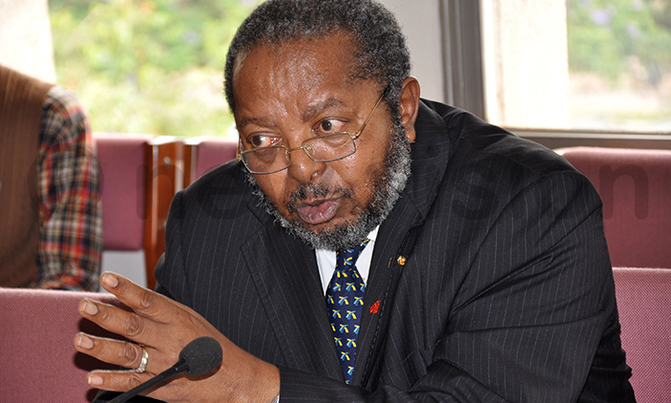Emmanuel Tumusiime Mutebile, the Central Bank governor, said the worst may not be over.
“The economic outlook is extremely uncertain, largely because of the unpredictable intensity and duration of the pandemic.”
Mutebile said the economy had contracted by an estimated 3.2% in the second quarter of 2020.
“The economic outlook is extremely uncertain, largely because of the unpredictable intensity and duration of the pandemic.
The downside risks to the economic growth projection include the possibility of a widespread and possibly more severe second wave of the virus, requiring a complete lockdown, as well as, the locust invasion, the governor said.
As a result, the benchmark Central Bank Rate (CBR) has been held at 7%, its lowest ever level, for August and September as banks lower lending rates to support the economy.
“BOU has, therefore, decided to maintain the CBR at 7%,” Mutebile said, pointing out that complementary fiscal and monetary policy actions have provided a foundation for the recovery of economic activity as the lockdown is relaxed.
Economic growth in Financial Year (FY) 2020/21 is projected in the range of 3%-4%, further increasing to 5%-6% in FY 2021/22.
Economic growth is consequently expected to remain below the potential 7% growth rate, until FY 2022/23.
The Purchasing Managers’ Index (PMI) — which measures private sector vitality, slightly crossed the 50 mark, indicating slight improvements in the business environment, even as job cuts continued well into the third quarter of 2020.
The Composite Index of Economic Activity (CIEA) grew by 5.7% month-on-month in June, indicating a pickup in economic activity relative to the contraction registered in the three months to May.
Demand and supply
Mutebile said the COVID-19 pandemic has affected both the demand and supply side of the economy.
“Whereas supply will initially recover in line with the easing of containment measures, demand will benefit only gradually from improvements in foreign demand and confidence levels, as well as continued support from fiscal and monetary policies,” the governor said.
He cautioned that many consumers are expected to be hesitant to resume their previous spending patterns, partly due to fears of contracting the virus and uncertainty about earnings when the economy fully opens up.
Mutebile said even those whose incomes were not affected may increase their need for precautionary savings.
He added that low exports of goods and subdued tourism receipts are projected to continue to weigh on economic growth, given weaker global demand.
Volatility
Mutebile warned that Uganda remains vulnerable to recurring spouts of global financial volatility, stemming either from continued global economic weakness or the uncontrolled spread of the COVID-19 pandemic.
The governor said increasing Non-Performing Loans and high lending interest rates could delay recovery of Private Sector Credit extensions to preCOVID-19 levels.
On a positive note, the Central Bank said economic growth could turn out stronger than projected if the spread of the virus is contained, or if a vaccine or effective treatment is available earlier than is currently being assumed.
Annual headline and core inflation rose to 4.7% and 5.8%, respectively, in July 2020, from corresponding levels of 4.1% and 4.9% in June 2020.
The Central Bank said the path for inflation over the next 12 months largely reflects the influence of containment measures particularly on public transport and increases in prices of imported consumer goods as a result of higher taxes to support import substitution.
Dr Adam Mugume, the BOU executive director for research said sectors, such as agriculture, which was not badly hit by COVID-19 pandemic containment measures and manufacturing could lead economic recovery.
Stephen Kaboyo of Alpha Capital Partners said the decision of keeping rates unchanged speaks to the fact that the BOU believes that it is done its part for now in terms of mitigating the economic impact of COVID-19 in spite of the fact that the fiscal side still remains constrained.
He said BOU did not see strong justification to cut rates because the local currency is relatively stable in an environment, where the interbank market is excessively liquid.
“BOU seems to have taken a view that combination of monetary measures taken in quarter two of the calendar should start taking effect in anticipation that easing of the lockdown measures should lead to recovery of economic activity,” Kaboyo said.

